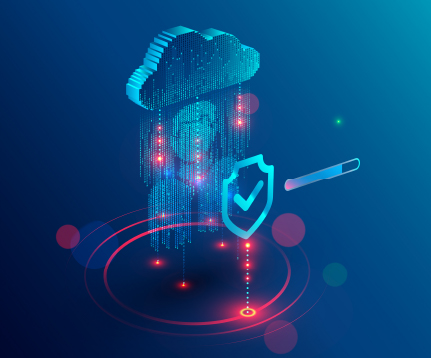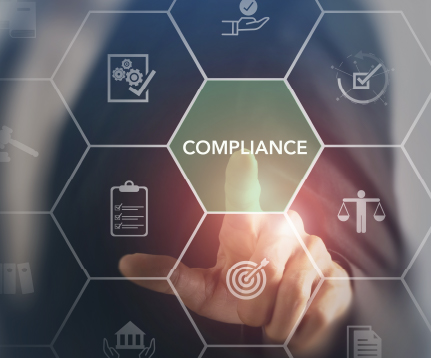|

Introduction
Digital technology has become a part of life, and it plays a prominent role in almost every business type, be it online shopping to banking to government infrastructure. With constant development in technology, businesses hold huge risks of data leakage and data breaches can affect the growth and reputation of organizations. Hence, Data Security becomes crucial to every organization irrespective of their sizes or business types.
Once tracking technologies were introduced a few years ago, every step of your digital footprint was being recorded without any regulation on the data collection. This implied that, whether you shopped online, booked tickets, or posted a picture on social media, your data was recorded/collected freely by the Website/Portal owners who used that information at their own will. However, today the situation has changed. With the increasing data theft incidents and threat landscape – all businesses are obliged to protect their data.
Also, since existing privacy laws were not enough for regulating this data collection and usage, governments across the globe began passing new laws or updating the existing ones to avoid misuse of personal information on the internet. The recent ones being – GDPR, CCPA, and more. Thus, as technologies change, so do data privacy laws and governments end up framing new laws or amend existing privacy laws.
Why Data Security?
Data is an asset for any organization and is key to its growth and success. To have strong data security, it is important to secure your data from everywhere, every device, every network, throughout cloud and across the web that connects to your corporate data. To secure your data from today’s advanced data security threats, you must be aware of these data security considerations.
|

Data Security Consideration:
- Location of the data stored – you must be aware of the exact location of your sensitive data else you will not be able to protect your data effectively.
- Access to your data – You must be aware of who always has access to what. This plays a vital role in securing the data.
- Continuous monitoring and real-time alert on your data – You must have constant monitoring, and real-time alert on your data not only to meet compliance regulations but also have a closer look on suspicious activity and other unauthorized activity.
After considering the above key security vectors, the next step is to know what measures are required to implement & build a strong comprehensive data security posture for your organization and to protect your sensitive data from data breach/data leak. Below are some of the best data security measures to consider.
|

Data Security Measures
- Data Discovery & Classification – Data Discovery is the foundation to identify – what, where, and why of your data. Data Discovery along with classification provides advanced capabilities for discovering, classifying, labelling, and reporting the sensitive data (ex: business, financial, healthcare, or personal information) in all your data stores – file servers, databases, endpoints, and more. This gives you the visibility into data across all your infrastructures so that the appropriate protection policies can be applied.
- Data Loss Prevention – These solutions monitor, detect and block sensitive data while in use, in motion, and at rest based on the organization policies and thus help in preventing potential data loss/breaches.
- Data Encryption – Encrypting your data means protecting it from unauthorized user access stored on any platform.
- Data Masking & Tokenization – Data Masking helps in hiding the original content by obscuring it with inauthentic version, and only authorized users can access the original data.
- Data Access Controls – Limiting the access and providing the data access to only required user sets based on access controls according to the business needs is a must to secure data from unauthorized access.
- Two-Factor Authentication – Using a Two-Factor Authentication provides extra layer protection to your data strengthening the security landscape.
- Data Backup and Recovery – Data Backup plays a critical role in restoring data in case of data loss or data crash and facilitating business continuity.
- Firewall & Anti-Malware -It protects your network, managing both internal and external networks and blocks requests to & fro untrusted network – IP address, network port & protocol.
- IPS/IDS – Intrusion detection systems (IDS) and intrusion prevention systems (IPS) should be deployed in your network to detect and stop potential incidents by analyzing & blocking the network traffic for signatures that match known cyberattacks.
- Regularly updating the operating system, security patches & addressing vulnerabilities – Regular update on the operating system and keeping security patches policies up to date ensure better protection from threats.
- Periodic Audits – Data security is not a one-time activity, and regular audits of your data security posture should be conducted to detect & address any anomalies or loopholes.
|

Most Prevalent Data Security Compliance and Standards
As the data threat landscape & technology changes, data privacy laws and governments try to keep up with the changes and makes necessary amendments in these laws. So, either there are new regulations that are being passed, or the existing ones are being updated regularly. But there is certain compliance regulation that governs organizations dealing in personal data regardless of the type or size of the organization.
The most widely complied regulations include the following:
GDPR: The General Data Protection Regulation (GDPR) is amended to protect data of citizens in European & U.K. region from a data breach. It not only applies to the organization residing in the EU/UK but also applies to the companies processing personal data of European/U.K. citizens. (Read More)
HIPAA: The Health Insurance Portability and Accountability Act was amended to protect individual medical records and other personal health information and the health care transactions that are carried electronically.
Sox/Sarbox: The Sarbanes-Oxley Act of 2002 was amended by the U.S. to protect investors from fraudulent activities and strictly mandates reforms to improve financial disclosures from corporations and protects accounting fraud.
CCPA: The California Consumer Privacy Act is amended to protect consumer data of California citizens and creates rights relating to access, deletion and sharing of personal information collected by a company.
|
